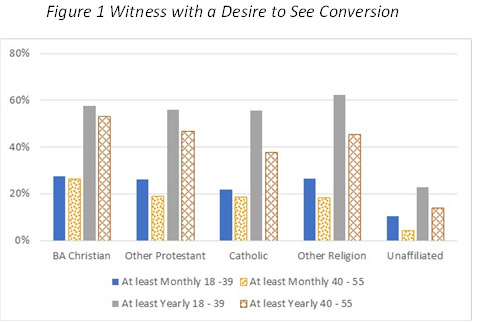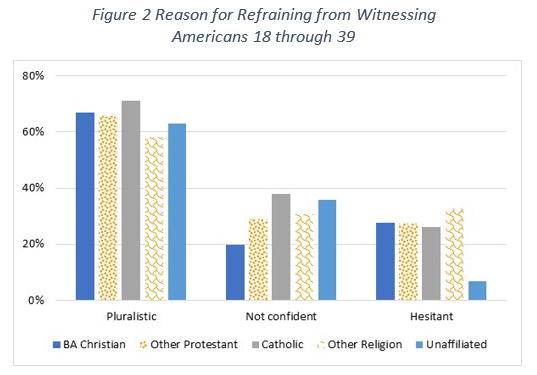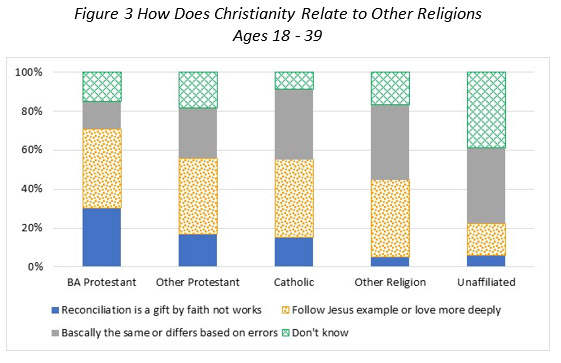Tom Davis provides several lines of evidence that Jesus was a real, physical person of history.
Introduction
Does the historical Jesus matter?
Can Christians get by with purely theological Jesus? Some early Christians asked if faith needed philosophy to function. They used Athens to represent philosophy and Jerusalem to represent faith. In a similar way New Testament scholar Dale Allison asks, “What can the historical Jesus of Athens have to do with the biblical Christ of Jerusalem? Where two or three historians are gathered together, can the biblical Christ be in their midst?”{1} Allison thinks that by using historical methodology we cannot connect the historical Jesus to the Biblical Jesus. Faith and historical knowledge cannot be completely reconciled. Is this the case?
While there are many biblical scholars that agree with Allison’s view, there are other scholars that believe that the historical Jesus and the biblical Jesus must be the same Jesus in order for Christianity to be true. N. T Wright states, “The Bible, after all, purports to offer not just ‘spiritual’ or ‘theological’ teachings but to describe events within the ‘natural’ world, not least the public career of Jesus of Nazareth, a first-century Jew who lived and died within the ‘natural’ course of world history.”{2} New Testament scholar Ben Witherington also calls out Allison’s way of thinking:
“The problem with this bifurcation is that despite numerous attempts in this century to turn Christianity into a philosophy of life, it is and has always been a historical religion—one that depends on certain foundational events, particularly the death and resurrection of Jesus, as having happened in space and time. A faith that does not ground the Christ of personal experience in the Jesus of history is a form of docetic heresy, for it implies that what actually happened in and during Jesus’ life is inconsequential to Christian faith.”{3}
Wright and Witherington think that a methodology that does not allow for the possibility of miracles is flawed. The Old Testament and the New Testament claim that certain events happened. Either these events happened in the real world, or they did not. If these events happened in the real world, then we can know about them using the same methods that historians use to investigate any other historical event. Dale Allison cannot have it both ways.
Craig Blomberg argues:
“An understanding of any religion depends heavily on the historical circumstances surrounding its birth. This is particularly true of Judaism and Christianity because of the uniquely historical nature of these religions. Centered on Scriptures that tell the sacred stories of God’s involvement in space and time with communities called to be his people, the Judeo-Christian claims rise or fall with the truthfulness of those stories. For Christianity, the central story is about the life, death, and resurrection of Jesus—the story that forms the topic of the four New Testament Gospels.”{4}
Blomberg proposes that all religions should have to deal with historical scrutiny. Among the world’s religions only Islam, Judaism and Christianity claim to be built on a foundation on historical events. This historical foundation makes historical Jesus studies useful for apologetics and theology.{5} The usefulness of this field of study is important for Christian discipleship. N. T. Wright states, “I see the historical task, rather, as part of the appropriate activity of knowledge and love, to get to know even better the one whom we claim to know and follow.”{6} Christians are representatives and disciples of Jesus. This means we should know who Jesus is and what He did. Studying the life of Jesus is a part of necessary discipleship.
In this article I argue that we have evidence outside the Bible that shows that Jesus existed. Then I argue that the Gospels are ancient biographies, and therefore count as historical evidence for examining the life and teachings of Jesus. Next, I demonstrate that the narratives of the virgin birth of Jesus in Matthew and Luke do not contradict each other. After that I show that the central theme of the teachings and actions of Jesus show that the kingdom of God was coming through his ministry. Finally, I provide evidence that Jesus rose physically from the dead.
Evidence Outside the Bible
One of the complaints that Christianity’s critics have is that Jesus is not mentioned much outside the Bible. These critics claim that if Jesus were as prominent as the Gospels portray Him to be, there would be more evidence to corroborate the claims of the Gospels. Luke Timothy Johnson explains the issue:
“There are a handful of authentic but very brief references to John the Baptist, Jesus, and James in the writings of the Jewish historian Josephus: but from the great ocean of Jewish literature, there are otherwise fragmentary, coded, and oblique references to Jesus and his followers. From the Greco-Roman side we have the cryptic and not completely comprehending observations of the Roman historians Suetonius and Tacitus: the precious firsthand observation reportedto the emperor Trajan by his governor in Bithynia, Pliny the Younger: and possible allusions by the philosopher Epictetus.”{7}
For some people, this simply is not enough evidence to believe that Jesus existed. We will examine four sources
outside the Bible: Josephus, Suetonius, Tacitus, and Pliny the Younger.
Josephus
Josephus is the most important historical source for Jesus outside the New Testament. He was a Jewish officer
that fought in the war against Rome from A.D. 66-70. After surrendering to the Romans, he wrote several important histories. In his “Jewish Antiquities” he mentions Jesus:
“At this time there was a wise man who was called Jesus, if indeed one should call him a man. For he was a doer of startling deeds, a teacher of people who received the truth with pleasure. And he gained a following both among the Jews and among many of Greek origin. He was the messiah. And when Pilate, because of an accusation made by the leading men among us, condemned him to the cross, those who had loved him previously did not cease to do so. For he appeared to them on the third day, living again, just as the divine prophets had spoken of these and countless other wonderful things about him. And up until this very day the tribe of Christians, named after him, has not died out.”{8}
Most scholars think that this passage was changed by early Christians to add credibility to their claim that Jesus was the Messiah. Several scholars tried to reconstruct the original passage by removing the most flattering sections out of this passage.{9} In 1972 Professor Schlomo Pines released a study of a manuscript written in Arabic. The Arabic manuscript was similar to the reconstructed passage that previous scholars had come to.{10} The original wording is as follows:
At this time there was a wise man who was called Jesus. His conduct was good and (he) was known to be virtuous. And many people from among the Jews and the other nations became his disciples. Pilate, because of an accusation made by the leading men among us, condemned him to be crucified and to die. But those who had become his disciples did not abandon his discipleship. They reported that he had appeared to them three days after his crucifixion, and that he was alive.
Most scholars agree that the reconstruction of the text and the corresponding text from the Arabic manuscript show that this is an authentic reference to Jesus by Josephus.{11} Josephus was aware that Jesus had a reputation to be a moral person, and that he had Jewish and Gentile followers. He knows that some Jewish leaders brought Jesus to Pilate, and the result was that Pilate executed Jesus by crucifixion. Josephus also tells us the Jesus’ disciples claimed that they saw Jesus alive three days after his crucifixion.
Suetonius
Suetonius was a Roman historian who wrote about the lives of the Caesars and other important men of the first
century. Writing early in the second century, he makes one mention of Christus. The context is that during the reign of Claudius the Jews were causing a public disturbance over Christ. This fits with known tensions between Jews and Christians at the time. Most historians are convinced that Christus is a variant spelling or misspelling of Christ. Suetonius writes, “As the Jews were making constant disturbance at the instigation of Christus, he expelled them from Rome.”{12} Suetonius also tells us about Nero persecuting Christians after a fire burned much of Rome. “Punishment was meted out to the Christians, a group of individuals given over to a new and harmful set of superstitions.”{13} While this does not tell us much, it does tell us that Christians in Rome were worshiping Jesus, and that the people of Rome noticed that they had different religious practices concerning Christ.{14}
Tacitus
Tacitus was a Roman historian who lived from A.D. 55-120. He mentions Christ in his Annals, which covers
Roman history from the death of Augustus to the death of Nero (A.D. 14-68). Below is his mention of Christ Christus):
“Nero fastened the guilt and inflicted the most exquisite tortures on a class hated for their abominations, called Christians by the populace. Christus, from whom the name had its origin, suffered the extreme penalty during the reign of Tiberius at the hands of one of our procurators, Pontius Pilatus, and a most mischievous superstition broke out.”{15}
While Tacitus does not give us much information to work with, there are a few observations that we can make. First, Jesus was crucified by Pontius Pilate. Second, Second, Jesus’ followers were called Christians by the people. Third, the Christian movement spread to Rome quickly.{16}
Pliny the Younger
Pliny the Younger was the governor of Bithynia in Asia Minor. As governor he interrogated Christians that lived in
the area. He wrote a letter to Trajan, the Emperor at the time, to get advice on how to handle the Christians in his province. The relevant part of the letter follows:
“They affirmed, however, that the whole of their guilt, or their error, was that they were in the habit of meeting on a certain fixed day before it was light, when they sang in alternate verse a hymn to Christ as to a god, and bound themselves to a solemn oath, not to any wicked deeds, but never to commit any fraud, theft, adultery, never to falsify their word, not to deny a trust when they should be called upon to deliver it up; after which it was their custom to separate, and then reassemble to partake of food—but food of an ordinary and innocent kind.”{17}
From this letter we find that Christians in Bithynia held themselves to a certain moral code, sang hymns to Christ as if he was a God, and gathered to partake of food. It does not tell us much, but it does tell us that Christians early on worshiped Jesus as God.{18}
What conclusions can be reached from these sources? First, Jesus was crucified under Pontius Pilate. Second, Some of Jesus’ disciples claimed to see Jesus alive after his crucifixion. Finally, the followers of Jesus worshiped him as if he were a god.{19}
The Gospels
The gospels of Matthew, Mark, Luke, and John are the primary sources for the life of Jesus. Many New Testament scholars claim that these Gospels were written anonymously, but there is good reason to think that the traditional authors wrote these gospels. Nonetheless, skeptical scholars do not trust the Gospels as reliable sources.
Skeptical scholars argue that the traditional authors could not have written these Gospels because they were wrong about geographical details, and that they were illiterate. Concerning the geographical details, while there are several good scholarly responses addressing the asserted errors, this simply does not lead to the conclusion that the Gospels were not authored by Matthew, Mark, Luke, and John. The worst-case scenario only shows that they made an error in describing the geography. (I don’t think they made an error, I simply do not have to show that they didn’t make an error to show who the authors were.)
Matthew was a tax collector, so he would have known how to write, probably in both Aramaic and Greek. Mark was from a wealthy family and easily could have learned to write in Greek. Luke was an educated Gentile that would have been able to write in Greek. Even if John couldn’t read or write, he could have had a literate Christian record what John dictated to him as a scribe.
In claiming that we do not know who the authors of the Gospels were, the skeptics also ignore the traditions and the manuscript evidence. The earliest attestation of authorship for the Gospels is a Christian named Papias, a
student of John. Papias claims that John wrote a gospel. He tells us that Mark wrote a gospel based on Peter’s teachings. He also tells us that Matthew wrote a sayings gospel in Hebrew. From Papias we can conclude that John and Mark wrote gospels, and that Matthew wrote a sayings gospel that we do not have.{20}
The next person of importance is Irenaeus, a student of Polycarp, who was a student of John. Irenaeus tells us that the gospels were written by Matthew, Mark, Luke, and John. The most reasonable explanation as to how Irenaeus came across this information is that it is what Polycarp taught him.{21} There are two early sources that the gospels were written by the traditional authors. This means that the tradition is early, and no one challenged it until the Enlightenment.
Most scholars believe that Mark was the first gospels to be written. The majority of scholars think Mark wrote his gospel around A.D. 70, although it could have been earlier. Most scholars believe that John was the last gospel to be written, around A.D. 90. Jesus’ death occurred in either A.D. 30 or 33. This means that these gospels were written within living memory of the earthly life of Jesus. The gospels being written within living memory of Jesus means that people who were eyewitnesses to the events were alive and could have provided corrections if they thought that the gospels were in error. This combined with the unanimous traditions and manuscript evidence of who the authors were gives us good reason to say that the information in these gospels is reliable, and that they are good historical sources for examining the life of Jesus.{22}
The Virgin Birth
In studying the life of Jesus, the first event we come to is his birth. This is a fantastic claim, and it is understandable why people would be skeptical of a claim like this. The question is, where does the evidence lead?
The narratives of the virgin birth are found in Matthew chapter 1 and Luke chapters 1 and 2. When examining these narratives, skeptical scholars like Bart Ehrman point out perceived contradictions in Matthew and Luke.{23} They see that in Matthew, Joseph and Mary live in Bethlehem; in Luke they lived in Nazareth and moved to Bethlehem. In Matthew the angel appears to Joseph, but in Luke the angel appears to Mary. In Matthew the baby Jesus is visited by magi, in Luke Jesus is visited by shepherds. In Luke Jesus is presented in the temple, in Matthew he is not. In Matthew Joseph takes Mary and Jesus to Egypt to protect them from Herod, in Luke they move to Bethlehem. They conclude that these differences mean that both stories are made up. Is that the right conclusion?
When examined closely the perceived contradictions disappear and the narratives fit together like a puzzle to form one consistent narrative. The following narrative solves all the issues listed above.
Zechariah was burning incense in the temple when an angel appeared and told him that his wife Elizabeth would become pregnant. An angel visits Mary in Nazareth and tells her that she will become pregnant with Jesus. When Elizabeth was six months along, Mary came to visit her. When Mary returns to Nazareth, Joseph sees that she is pregnant and was going to divorce her. An angel appears to Joseph and tells him that Mary’s pregnancy is from God and he is to care for Mary and the Child. Due to a Roman census Joseph and Mary travel to Bethlehem. When Jesus was born angels appeared to shepherds and told them that the Messiah was born and that they could find him in Bethlehem. The shepherds go to Bethlehem and visit Jesus. Joseph and Mary take Jesus to be presented at the
temple according to Jewish law. The magi from the east come to visit Jesus. After the magi leave, Joseph is told by an angel to take Mary and Jesus to Egypt because Herod wants to kill Jesus. After living in Egypt, an angel
appears to Joseph and tells him to move back to Israel.
This shows that while the narratives in Matthew and Luke are different, they do not contradict each other. This also shows that the birth narratives in Matthew and Luke are not borrowing from each other. These two sources are independent historical sources.
Jesus Proclaimed the Kingdom
The central theme of the preaching of Jesus is the coming of the kingdom of God, also called the kingdom of heaven. These two phrases appear eighty-three times in the gospels. The kingdom was the central message of Jesus’ preaching.
In Luke, when the angel visitedMary, the angel told her that Jesus would “. . . be great and will be called
the Son of the Most High. And the Lord God will give to him the throne of his father David, and he will reign over the house of Jacob forever, and of his kingdom there will be no end.”{24} Mark states that Jesus first preached, “The time is fulfilled, and the kingdom of God is at hand; repent and believe the gospel.”{25} John records a conversation Jesus and Nicodemus, a Pharisee, who wanted to learn about what Jesus was doing. Jesus’ first statement to Nicodemus was, “Truly, truly, I say to you, unless one is born again he cannot see the kingdom of God.”{26} Matthew described the beginning of Jesus ministry: “And he went throughout Galilee, teaching in their synagogues and proclaiming the gospel of the kingdom and healing every disease and every affliction among the people.”{27} These quotes, and all the teachings of Jesus, show that proclaiming the kingdom of God was the central theme of His preaching.{28}
Jesus also demonstrated that He was bringing the kingdom of God with his ministry by casting out demons. After one particular instance of casting out a demon the Pharisees said, “It is only by Beelzebul, the prince of demons, that this man casts out demons.”{29} Jesus’ response was, “But if it is by the Spirit of God that I cast out demons, then the kingdom of God has come upon you.”{30}
We can see that the instances of Jesus casting out demons is proclaiming the kingdom of God and the end of the reign of the ruler of this age through His actions. Orthodox priest Andrew Stephan Damik describes the meaning of Jesus’ exorcisms: “Therefore, the exorcisms Jesus performed in His time on earth were not a mere sideshow to demonstrate his power or an ad hoc fix for people’s bodily ailments. Driving out demons was core to His mission. He had come to claim the world for God’s kingdom, so it makes sense that He would spend time driving out the oppressors and false rulers.”{31}
Through His proclamations of the coming kingdom, and by casting out demons, Jesus demonstrated that God was
bringing His kingdom to earth. Jesus, and later his apostles, called people to come to God and join His kingdom. The kingdom of God is God’s kingly rule over His people and His creation.{32} The coming of God’s kingdom means that through Jesus, God has begun the work of setting things right.{33}
The Resurrection of Jesus
The resurrection is the most foundational claim made by the earliest Christians. Jesus is the central person
in the New Testament. The central event in the life of Jesus that confirms all His claims about who He is and what He said about the kingdom is the resurrection. Paul states the importance of the resurrection clearly:
“But if there is no resurrection of the dead, then not even Christ has been raised. And if Christ has not been raised, then our preaching is in vain and your faith is in vain. We are even found to be misrepresenting God because we testified about God that he raised Christ, whom he did not raise if it is true that the dead are not raised. For if the dead are not raised, not even Christ has been raised. And if Christ has not been raised your faith is futile and you are still in your sins.”{34}
In Paul’s view there is no other event in history that is more important than the resurrection. William Lane
Craig, a Christian philosopher, summarizes the importance of the resurrection, “The Christian faith stands or falls on the event of the resurrection. If Jesus did not rise from the dead, then Christianity is a myth, and we may as well forget it.”{35} In theology and history, nothing is more important than the resurrection.
What kind of evidence could we have for such an event? Our evidence is the New Testament documents. These sources were written by real people in real time and places. We have already seen that the Gospels are ancient biographies of Jesus that are reliable historical sources. Paul’s letter 1 Corinthians is also an important source of information about the resurrection of Jesus.
How does the evidence for Jesus’ life compare with the evidence we have for other significant historical figures? Alexander the Great died in 323 B.C. The first existing biography we have of Alexander was written by Diodorus of Sicily sometime in the first century B.C. This means there is roughly a 200-year gap between the death of Alexander and the first existing historical literature about his life. While some historians may be skeptical about accuracy on some points of the life of Alexander, no historian says that we cannot learn about Alexander from Diodorus. Muhammad died in A.D. 632. Ibn Shaq wrote the earliest biography of Muhammad 150 years after Muhammad died. What we have of that biography is found in the work of Ibn Hisham. No one doubts that we can
learn about the life of Muhammad from these writings. When it comes to Jesus, we have four biographies written about him within 70 years of his death. That means that all four biographies were written while people who were alive when Jesus was crucified were still living. As I argued earlier, two of these biographies were written by people who knew Jesus. This implies that the Gospels are good sources to take seriously.
What can we learn from the Gospels? First, Jesus died by crucifixion. All the Gospels have a crucifixion narrative in them.{36} While the Gospels give different minor details, they agree that Jesus was prosecuted by the Sanhedrin in an unjust trial. The Gospels also show that Jesus died of crucifixion under the rule of Pilate. This is supported by evidence from the works of Josephus and Tacitus that were discussed earlier. New Testament Scholar Michael Licona writes, “We have looked carefully at the data pertaining to Jesus’ death by crucifixion and have observed very strong reasons for granting the historicity of this event, and we have observed that it is granted by the overwhelming majority of scholars.”{37} Given the evidence from the Gospels, Josephus, and Tacitus, we can confidently say that Jesus died of crucifixion.
Second, all the Gospels state that Jesus was buried in the tomb of Joseph of Arimathea.{38} Joseph was part of the Sanhedrin, the governing body that just convinced Pilate to execute Jesus. It is unlikely that Jesus’ disciples would invent a story where a member of the Sanhedrin would give him an honorable burial after having him executed as a criminal. Given the early consistent testimony from the Gospels, and that it is unlikely that Jesus’ disciples would invent the story, it is reasonable to believe that Joseph took Jesus’ body and buried Him in the tomb. All the evidence shows that Jesus was buried in the tomb of Joseph of Arimathea.{39}
Third, the tomb of Jesus was found empty by a group of Jesus’ women disciples. Once again, this is found in every
Gospel.{40} There are differences in the lists of women who showed up at the grave of Jesus, but there are no contradictions. A variation of details such as who was in the room vary when examining eyewitness testimony. It is unlikely that men would invent a story where they were hiding, and the women were going to Jesus’ grave. N. T. Wright wrote, “If they could have invented stories of fine, upstanding reliable male witnesses being first at the tomb, they would have done it. That they did not tells us either that everyone in the early church knew that the women, led by Mary Magdalene, were in fact first on the scene, or that the church was not so inventive as critics have routinely imagined, or both.”{41} The evidence shows that it is reasonable that Jesus’ grave was found empty by a group of His women disciples.
Fourth, Jesus appeared to multiple people in multiple settings. Mark does not record a post-resurrection appearance of Jesus. The earliest manuscripts of Mark end at verse 16:8, He records the appearance of an angel to the women who found the tomb empty. Matthew, Luke, and John record Jesus appearing to the women, then several appearances to several people in different settings and even to groups of people. While harmonizing these appearances is difficult, there is enough evidence here to conclude that the apostles believed that they saw the risen Jesus.
While the Gospels are early evidence of the death and resurrection of Jesus, there is earlier evidence. This evidence is a creed found in one of Paul’s letters, 1 Corinthians 15:3-8:
“For I delivered to you as of first importance what I also received: that Christ died for our sins in accordance with the Scriptures, that he was buried, that he was raised in accordance with the Scriptures, and that he appeared to Cephas, then to the twelve. Then he appeared to more than five hundred brothers at one time, most of whom are still alive, though some have fallen asleep. Then he appeared to James, then to all the apostles. Last of all, as to one untimely born, he appeared also to me.”
This creed was designed to be memorized easily and is not Paul’s normal style of writing. The differences and the creedal pattern indicate that this was not originally composed by Paul. So where did Paul get it?
In his letter to the Galatians Paul provides a clue to where he got this creed. In chapters 1 and 2 Paul gives his “resume” to the church at Galatia. Paul says that after his conversion he went to Arabia, then returned to Damascus. Three years later he visited Peter and James for 15 days. 14 years later Paul met with Peter, James and
John. Both times Paul says that they approved of his ministry.{42} Most scholars are convinced that Paul got this creed from Peter and James. N. T. Wright states, “It was probably formulated within the first two or three years after Easter itself, since it was already in formulaic form when Paul ‘received’ it. We are here in touch with the earliest Christian tradition, with something that was being said two decades or more before Paul wrote this letter.”{43}
What information does this creed give us? It tells us that Christ died, that he was buried, that Jesus was raised, and that Jesus appeared to multiple people. This evidence is consistent with the evidence from the Gospels. All the evidence indicates that Jesus rose physically from the dead. William Lane Craig’s conclusion is, “Each of these three great facts—the empty tomb, the appearances, the origin of the Christian faith—is independently established. Together they point with unwavering conviction to the same unavoidable and marvelous conclusion: Jesus actually rose from the dead.”{44} There are good reasons to believe that Jesus rose from the dead. If Jesus did rise from the dead, his claims about the kingdom of God/Heaven are true.
Conclusion
Skeptics often say that there is no evidence that Christianity is true. They say that faith is blind, and that Christians only believe because they were raised by Christians. It is true that many Christians were raised by Christians, but this does not show that Christianity has no evidence to support its claims. These critics say that the Bible, in this case the Gospels, are not allowed as evidence because they are religious books. The academic discipline of natural theology generally excludes the examination as well. They say if we allow the Bible to be examined this way then we have to allow all religious books to be examined this way. I welcome the challenge. N. T. Wright responds to the exclusion of the Bible in natural theology, “But Jesus was a figure of the real world. The Gospels are real documents from the real world. To refuse to treat them as ‘natural’ evidence because the Christian tradition has seen them as ‘revelation,’ and to dismiss Jesus similarly because the Christian tradition has confessed him to be God incarnate, looks like the skeptic bribing the judges before the trial.”{45} The best and most important evidence for the birth, life, death, and resurrection of Jesus is the Gospels. If my arguments are true, then Jesus is who He claimed to be, the Messiah, the world’s sovereign King. Studying Jesus is not useful only for apologetics, it is a necessary part of Christian discipleship. When we know what the Gospels teach about Jesus, then we will be better followers of Jesus, we will love Him more, and we will be better at representing Him to those around us.
Notes
1. Allison Jr., Dale, The Historical Christ and the Theological Jesus (Grand Rapids: Eerdmans Publishing, 2009) 8.
2. Wright, N. T. History and Eschatology: Jesus and the Promise of Natural Theology (Waco: Baylor Univrsity Press, 2019) xi-xii.
3. Witherington III, Ben. The Jesus Quest; The Third Search for the Jew of Nazareth (Downers Grove: InterVarsity Press, 1995) 10-11.
4. Blomberg, Craig. Jesus and the Gospels (Nashville: Broadman & Holman Publishing, 1997) 5.
5. Craig S. Keener. The IVP New Testament Commentary Series: Matthew (Downers Grove: InterVarsity Press, 1997) 19. “The historical questions are important for apologetics, for defending the faith in a society that doubts Jesus’ claims: the literary questions are important for preaching, because we want to communicate the same inspired message we find in the text.”
6. Wright, N. T. The Challenge of Jesus: Rediscovering Who Jesus Was and Is (Downers Grove: InterVarsity Press, 1999) 14.
7. Johnson, Luke Timothy. The Real Jesus: The Misguided Quest for the Historical Jesus and the Truth of the Traditional Gospels (San Francisco: HarperCollins Publishers) 87.
8. Josephus, Antiquities 18.3.3
9. Ehrman, Bart. Did Jesus Exist? The Historical Argument for Jesus of Nazareth (New York: HarperCollins, 2012) 60-61.
10.Habermas, Gary R. The Historical Jesus: Ancient Evidence for the Life of Christ (Joplin: College Press, 1996) 193-194.
11. Bock, Darrell L. Studying the Historical Jesus: A Guide to Sources and Methods (Grand Rapids: Baker Academic, 2002) 55-58.
12. Claudius 25.4
13. Nero 16
14. Habermas, 190-191. Edwin Yamauchi, “Jesus Outside the New Testament: What is the Evidence,” in Jesus Under Fire: Modern Scholarship Reinvents the Historical Jesus, ed. Michael J. Wilkins, J. P. Moreland (Grand Rapids: Zondervan, 1995) 215-216; Bock, 47-49; Ehrman, 53-54.
15. Tacitus, Annals 15.44
16. Williams, Peter J. Can We Trust the Gospels? (Wheaton: Crossway, 2018) 23. “We may therefore conclude from Tacitus that Christianity spread far and fast and that being a Christian could be very difficult.” Yamauchi, ” 216. “Note that Tacitus, who despised Christians even more than he despised Jews, knew that they were called after Christ, who had been crucified (“suffered the extreme Penalty”) and Pontius Pilate in the reign of Tiberius.”
17. Pliny, Epistles 10.96-97.
18. Ehrman, 199-200.
19. Yamauchi, 217. “That Christ was crucified under Pilate under the reign of Tiberius, that despite his ignominious death his followers worshiped him as a god…”
20. Craig Keener, Christobiography: Memory, History, and the Reliability of the Gospels (Grand Rapids: Eerdmans Publishing, 2019), 405-407.
21. Bock, 164-167.
22. Bock, 14-22.
23. Ehrman, Bart. Jesus: Apocalyptic Prophet of the New Millennium (New York: Oxford University Press, 1999) 36-39.
24. Matthew 1:32-33
25. Mark 1:14
26. John 3:3
27. Matthew 4:23
28. Edersheim, Alfred. The Life and Times of Jesus the Messiah Vol. 1 (Grand Rapids: Eerdmans Publishing, 1969) 270. “In fact, an analysis of 119 passages in the New Testament where the expression ‘Kingdom’ occurs, shows that it means the rule of God; which is manifested in and through Christ; is apparent in the Church: gradually develops amidst hindrance; is triumphant in the second coming of Christ, (the end); and, finally, perfected in the world to come.” Ratzinger, Joseph (Pope Benedict XVI). Jesus of Nazareth: From the Baptism in the Jordan to the Transfiguration (New York: Doubleday, 2007) Translated by Adrian J. Walker, 62. “The ‘Kingdom of God’ is a theme that runs through the whole of Jesus preaching.”
29. Matthew 12:24
30. Matthew 12:28
31. Damek, Andrew Stephan. Arise O God: The Gospel of Christ’s Defeat of Demons, Sin, and Death (Chesterton: Ancient Faith Publishing, 2021) 91.
32. Morris, Leon, Tyndale New Testament Commentaries: The Gospel According to St. Luke (Grand Rapids: Eerdmans Publishing, 1974) 73. “Jesus is thus brought into relation with this kingdom of God, a kingdom that is not to be understood as a temporal kingdom, an earthly realm; rather it is God’s kingly rule, as Jesus would in due time make clear.”
33. Witherington, 72. “Jesus, as part of his program of reform, confronts supernatural evil, nature gone haywire and human nature that is sick. This means that his mission is about more than just the salvation of individuals, for the coming of the kingdom means a world set right, in the fuller sense of the term world.”
34. 1 Corinthians 15:13-17
35. Craig, William Lane, The Son Rises: The Historical Evidence for the Resurrection of Jesus (Eugene: Wipf and Stock, 1981), 7.
36. Matthew 27:32-56; Mark 15:21-41; Luke 23:26-49; John 19:16-37
37. Licona, Michael. The Resurrection of Jesus: A New Historiographical Approach (Downers Grove: InterVarsity Press, 2010) 318.
38. Matthew 27:57-61; Mark 15:24-42; Luke 50-56; John 19:38-42
39. Craig, 53-57.
40. Matthew 28:1-10; Mark 16:1-8; Luke 24:1-12; John 20:1:10-18
41. Wright, N. T. Christians Origins and the Question of God: The Resurrection of the Son of God (Minneapolis: Fortress Press, 2003), 608.
42. Galatians 1:11-2:9
43. Wright, N. T. Christians Origins and the Question of God, 319.
44. Craig, 134.
45. Wright, History and Eschatology, 74.
©2024 Probe Ministries

 What made the Romans such a formidable force? Discipline and adaptability. Being able to march long distances and maneuver across a variety of terrain. Timing and distance determine the victor of any confrontation. To do this, they needed shoes that were durable and able to grip the ground firmly.
What made the Romans such a formidable force? Discipline and adaptability. Being able to march long distances and maneuver across a variety of terrain. Timing and distance determine the victor of any confrontation. To do this, they needed shoes that were durable and able to grip the ground firmly. We are also told to take up the Shield of Faith (Ephesians 6:16) to extinguish the flaming arrows of the evil one. The favored shield in the time Ephesians was written was the Roman scutum, a large shield that protected most of the soldier’s body, enabling the Romans to protect both themselves and each other in tight formations without sacrificing their defense when fighting in looser formations. Most deaths in ancient battles occurred after, during, and after a rout. Therefore projectiles were used to disrupt and to instill fear before the two sides met in melee. Standing firm against hails of projectiles was key to surviving the battle.
We are also told to take up the Shield of Faith (Ephesians 6:16) to extinguish the flaming arrows of the evil one. The favored shield in the time Ephesians was written was the Roman scutum, a large shield that protected most of the soldier’s body, enabling the Romans to protect both themselves and each other in tight formations without sacrificing their defense when fighting in looser formations. Most deaths in ancient battles occurred after, during, and after a rout. Therefore projectiles were used to disrupt and to instill fear before the two sides met in melee. Standing firm against hails of projectiles was key to surviving the battle. Finally, Ephesians 6:17 refers to the Sword of the Spirit, or the word of God. In conjunction with the scutum was the gladius, a short sword primarily used for thrusting and short cuts. It was the legionary’s primary weapon. After throwing their pila (specialized javelins) to disrupt the enemy formation, the Romans drew their swords and closed the distance to engage in hand-to-hand fighting. Their armor and discipline enabled them to weather the brutal melee far better than their opponents. Ideally, this caused the enemy to rout.
Finally, Ephesians 6:17 refers to the Sword of the Spirit, or the word of God. In conjunction with the scutum was the gladius, a short sword primarily used for thrusting and short cuts. It was the legionary’s primary weapon. After throwing their pila (specialized javelins) to disrupt the enemy formation, the Romans drew their swords and closed the distance to engage in hand-to-hand fighting. Their armor and discipline enabled them to weather the brutal melee far better than their opponents. Ideally, this caused the enemy to rout.
 Looking at the detailed results, all religions except the Unaffiliated showed very similar results: over 20% (1 in 5) of those witnessed at least monthly and about half witnessed at least yearly. So, it would appear that there is a lot of witnessing going on with very few conversions.
Looking at the detailed results, all religions except the Unaffiliated showed very similar results: over 20% (1 in 5) of those witnessed at least monthly and about half witnessed at least yearly. So, it would appear that there is a lot of witnessing going on with very few conversions. We also asked the question: “When I refrain from communicating my religious belief with someone, it’s usually because:”
We also asked the question: “When I refrain from communicating my religious belief with someone, it’s usually because:” The results are charted in the graph to the right. First, notice the interesting result that only about 30% of Born Again Protestants selected ‘reconciliation is a gift’ while 40% selected following Jesus’ example or love others more deeply. As noted above, this second answer is not inconsistent with the concepts of Christianity but is not as fundamental as the first. However, selecting this answer over reconciliation is a gift’ is consistent with what we saw earlier: 70% of Born Again Christians are not exclusivists.
The results are charted in the graph to the right. First, notice the interesting result that only about 30% of Born Again Protestants selected ‘reconciliation is a gift’ while 40% selected following Jesus’ example or love others more deeply. As noted above, this second answer is not inconsistent with the concepts of Christianity but is not as fundamental as the first. However, selecting this answer over reconciliation is a gift’ is consistent with what we saw earlier: 70% of Born Again Christians are not exclusivists.